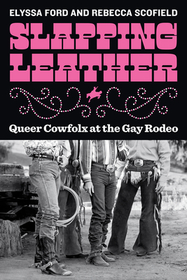
- Publisher's listprice GBP 22.99
-
10 983 Ft (10 460 Ft + 5% VAT)
The price is estimated because at the time of ordering we do not know what conversion rates will apply to HUF / product currency when the book arrives. In case HUF is weaker, the price increases slightly, in case HUF is stronger, the price goes lower slightly.
- Discount 20% (cc. 2 197 Ft off)
- Discounted price 8 786 Ft (8 368 Ft + 5% VAT)
Subcribe now and take benefit of a favourable price.
Subscribe
10 983 Ft

Availability
printed on demand
Why don't you give exact delivery time?
Delivery time is estimated on our previous experiences. We give estimations only, because we order from outside Hungary, and the delivery time mainly depends on how quickly the publisher supplies the book. Faster or slower deliveries both happen, but we do our best to supply as quickly as possible.
Product details:
- Publisher University of Washington Press
- Date of Publication 9 January 2024
- ISBN 9780295752136
- Binding Paperback
- No. of pages288 pages
- Size 229x152 mm
- Weight 408 g
- Language English
- Illustrations 1 map, 1 table, 25 b&w illus. - 1 Maps - 1 Tables, black and white - 25 Illustrations, black and white Maps 527
Categories
Long description:
Unapologetically brings gay rodeo out of the closet
Campy and competitive, gay rodeo offers a community of refuge that straddles the urban and rural. Since the mid-1970s, gay rodeos have provided space to both embrace and challenge the idealized masculinity associated with the iconic cowboy of the US West. Slapping Leather traces the history and growth of gay rodeo over the decades, demonstrating how queer cowfolx have fought to build a community where LGBTQ+ people can escape discrimination in both mainstream rodeos and broader society.
Yet not all LGBTQ+ groups have found full acceptance in gay rodeo. Originally formed by gay men for gay men, the rodeo has at times perpetuated historically problematic ideas about the US West, the iconic cowboy, and the meaning of masculinity. Despite the gay rodeo's credo of acceptance, its history reveals complicated relationships with straight rodeo, gender stereotypes, and women competitors. Drawing from multiple archives and over seventy oral history interviews, historians Elyssa Ford and Rebecca Scofield demonstrate how amid these tensions, participants, volunteers, and spectators continue to redefine the performance of the cowboy and national belonging.




